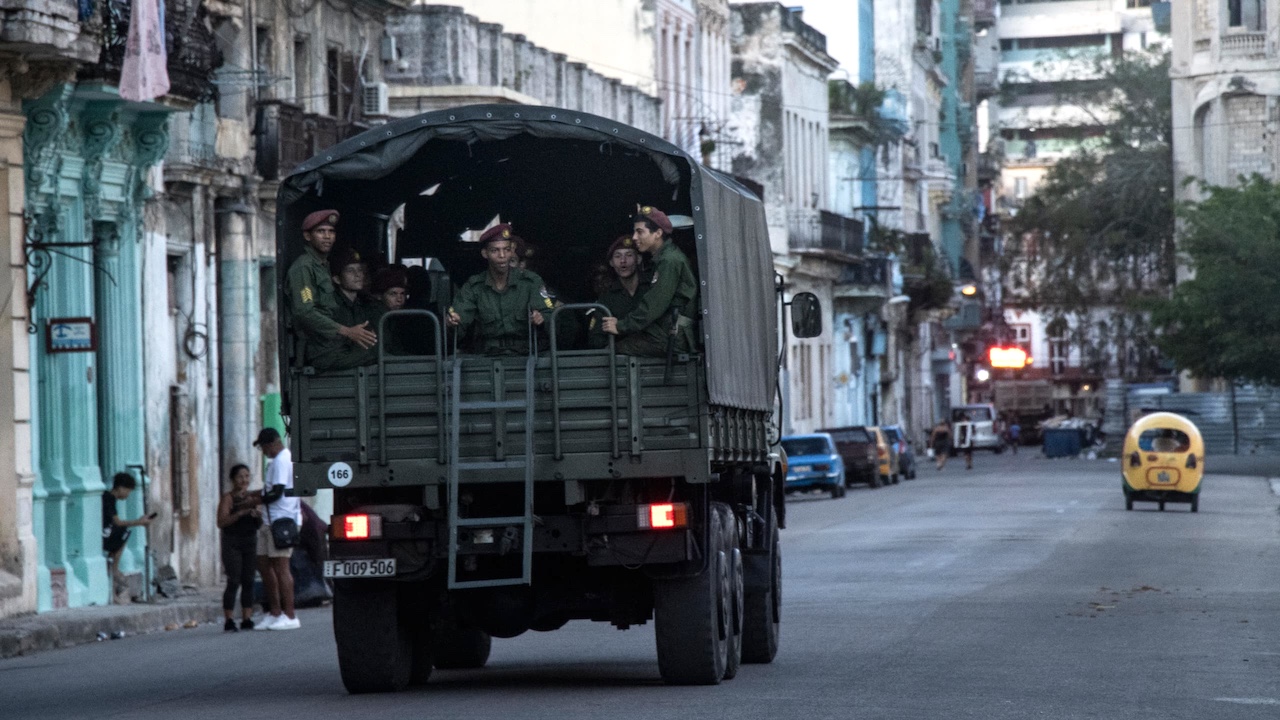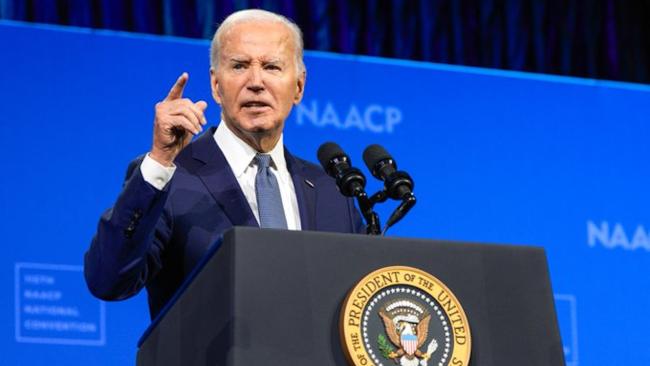The Biden Administration has fallen for a trap. Like the proverbial genie from the lamp, it has granted three wishes to dictator Raúl Castro in exchange for the release of 553 prisoners (it is not yet clear how many of these are political prisoners) in his last week in the White House.
Thus, these prisoners have been conditionally released, which means that at any time during the remainder of their sentences they could be put back in prison, if the authorities so decide, such that they remain prisoners at the mercy of the dictatorship's plans.
These negotiations between the United States Government and the regime in Havana, facilitated by the Vatican's mediation, were carried out behind the backs of Cuba's democratic forces and civil society. Not even the relatives of the political prisoners, or the Cuban Catholic Church, knew what was happening. Most of the families of the prisoners still do not know what will happen, revealing the contempt on the part of the negotiators —the Biden administration, the Vatican, and the Castro regime—towards an oppressed majority that has decided to oppose the tyranny on the island, organized into civil society and political opposition groups. This is a gesture that would be inconceivable and unacceptable in any other country in the world.
Among the concessions the Administration granted to Castroism are striking the Cuban regime from the list of State Sponsors of Terrorism, the suspension of Chapter III of the Helms-Burton Act, and the lifting of restrictions on companies linked to the military conglomerate GAESA, directly associated with the Ministry of the Interior, the Armed Forces, and systematic human rights violations.
Being included on the list of countries sponsoring terrorism entails significant symbolic and practical consequences. It recognizes the regime as an actor that promotes or facilitates terrorist activities, which reinforces its international isolation and limits its ability to access financial resources and diplomatic support. Exclusion from this list not only allows the regime to shirk its responsibility for activities such as supporting insurgent groups in Latin America, including the FARC and LNA, as well as harboring international criminals, but also sends a dangerous message: flagrant violations can be ignored in the interest of "diplomacy."
By being removed from this list the Cuban regime regains access to international financial institutions and improves its prospects of obtaining foreign investments. This comes at a time when its economy is on the verge of collapse, not because of the US embargo, as official propaganda contends, but because of the endemic corruption, mismanagement and brutal repression, which quashes any initiatives by citizens. This financial relief is a lifeline for a system that is reeling, but that will not hesitate to use these resources to strengthen its repressive apparatus.
Chapter III of the Helms-Burton Act allows U.S. citizens, including naturalized Cubans, to sue foreign companies that profit from properties confiscated by the regime after 1959. Its suspension guarantees impunity for expropriations carried out without compensation, an act of massive dispossession that affected thousands of families and companies. By suspending this provision the U.S. Government makes it easier for Cuban oligarchs and their foreign partners to continue to exploit confiscated property without any fear of the legal consequences of doing so.
This measure not only perpetuates a historical injustice, but also rewards a regime that has used these properties to enrich a privileged elite, while the majority of Cubans languish in poverty. In addition, it strengthens the State's control over strategic sectors of the economy, such as tourism, managed mostly by military companies, and perpetuates Cuban citizens' exclusion from participating in their own economy.
The military conglomerate GAESA (Grupo de Administración Empresarial S.A.) is the economic cornerstone of the Cuban regime. It controls a wide range of sectors, from tourism and retail to telecommunications and banking. GAESA is not a conventional economic entity, but rather a tool of Cuba's military and repressive apparatus. It finances activities including mass surveillance, the repression of dissidents, and social control.
The lifting of restrictions on companies linked to GAESA allows them to continue operating in the international market unhindered, attracting investments and foreign currency that will be used to maintain the repressive status quo. This not only perpetuates human rights violations, but also thwarts any possibility of economic empowerment for Cuban citizens. In a context in which small private companies face suffocating restrictions, strengthening GAESA is tantamount to reinforcing the state/military monopoly over the economy.
These three concessions are not isolated gestures, but rather a political and economic godsend for a regime facing unprecedented popular discontent. Instead of weakening it, they bolster its ability to oppress and control Cubans. At a time when protests in Cuba have demonstrated the people's willingness to fight for their freedom, these international measures directly undermine their efforts.
These concessions also have broader implications for the region. They boost the influence of a regime that has exported its model of repression and control to other Latin American countries, such as Venezuela and Nicaragua. At the same time, it sends a worrying signal to other authoritarian regimes: international pressure can be neutralized through negotiations that ignore victims and prioritize geopolitical interests.
For our part, we will welcome the political prisoners released with open arms, but we will not lose sight of the fact that releases cannot become the pretext to justify agreements that perpetuate an oppressive cycle of tyranny. Freedom is not a concession by the regime.
While the United States Government negotiates in the name of stability, Cuban society continues under a dictatorship that uses repression as its main tool of control. Governments and international organizations must understand that negotiating with dictatorships is not a path to peace and stability. It is not just about releasing a group of political prisoners, but about ensuring that there are no more arbitrary arrests, that human rights violations do not go unpunished, and that civil society has the space to build its future.
Cubans will continue to fight. We know that freedom is not given away or negotiated, but rather conquered, and it will not be schemes by Washington or Brussels, nor the regime's concessions, that define Cuba's destiny.

